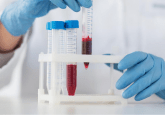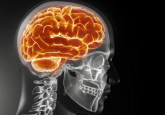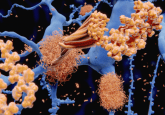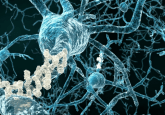Alzheimer’s risk gene may increase risk of developing severe COVID-19
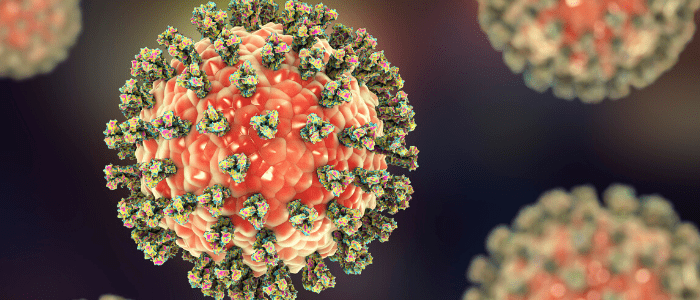
A team from the University of Exeter (UK) and the University of Connecticut School of Medicine (CT, USA) has linked an Alzheimer’s risk gene with severe symptoms of COVID-19. According to the researchers, having this faulty gene could double the risk of developing severe COVID-19.
Within their study, which has been published in the Journal of Gerontology: Medical Science, the team analyzed data from the UK Biobank and found a higher risk of severe COVID-19 infection among patients of European ancestry who carried two faulty copies of the APOE gene (termed e4e4).
Become a member of Neuro Central to receive regular updates
Previous research conducted by the team revealed that people with dementia are three-times more likely to develop severe COVID-19. However, individuals with dementia are currently not advised to shield – or shelter in place – based on health recommendations.
Part of this increased risk effect could have been due to exposure and high prevalence of the virus in care homes, although this present study indicates that a genetic component could also have a part to play.
The team found that people with the APOE e4e4 genotype were at double the risk of developing severe COVID-19 compared with individuals who had the common APOE e3e3 form.
You might also like:
It’s important to note that the majority of people in the population and within the sample size have not yet been exposed to the virus. In their analysis, 2.36% (n = 9022) of participants with European ancestries (n = 382,188) had the APOE e4e4 faulty gene but 5.13% (n = 37) of those participants who tested positive for COVID-19 (n = 721) had this gene variant.
“Several studies have now shown that people with dementia are at high risk of developing severe COVID-19. This study suggests that this high risk may not simply be due to the effects of dementia, advancing age or frailty, or exposure to the virus in care homes. The effect could be partly due to this underlying genetic change, which puts them at risk for both COVID-19 and dementia,” commented lead author, David Melzer (University of Connecticut School of Medicine).
Speaking about the study results, Carol Routledge (Director of Research at Alzheimer’s Research UK) stated that: “We don’t yet know how this Alzheimer’s risk gene might make people more susceptible to the virus. Despite the large study group, only 37 people with the risk gene tested positive for COVID-19, and we must be careful about the conclusions we draw from such small numbers.”
Sources: Kuo C-L, Pilling LC, Atkins JL et al. APOE e4 genotype predicts severe COVID-19 in the UK Biobank community cohort. J. Gerontol. doi:10.1093/gerona/glaa131 (2020); www.exeter.ac.uk/news/research/title_797679_en.html; www.alzheimersresearchuk.org/alzheimers-risk-gene-link-to-covid-19-risk/

